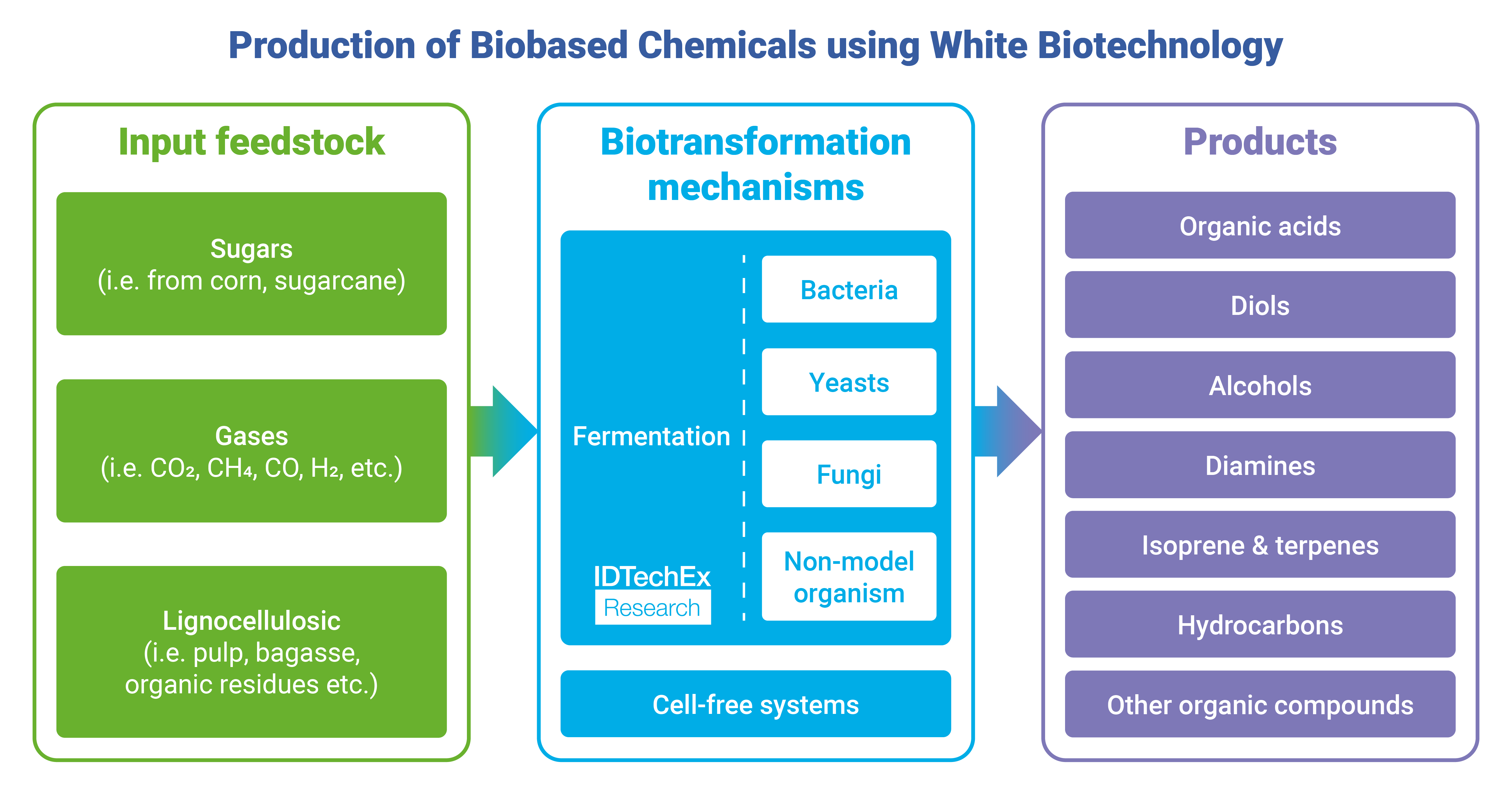
How white biotechnology is innovating to advance the global bioeconomy
Submitted by:
Andrew Warmington
Sona Dadhania, senior technology analyst at IDTechEx, shares some highlights from a new report
The advance of biotechnology is critical to expanding both the bioeconomy, where society uses renewable biological resources to create biobased products and the circular economy. Of the numerous colours of the biotechnology spectrum, in which different colours refer to different applications for biotechnology, white biotechnology stands out as a key technology enabler for the bioeconomy by advancing the industrial production of biobased products through biological systems.
White biotechnology, sometimes called industrial biomanufacturing, is the industrial production and processing of chemicals, materials and energy using living cell factories, like bacteria and yeast. It represents a more sustainable alternative to petroleum-based chemical production: one that not only decreases society’s reliance on fossil fuels but also uses less energy, generates less waste, and potentially creates more environmentally friendly products.
White biotechnology is not particularly new; for example, engineered enzymes for detergents have been produced via white biotechnology since the 1980s. That begs the question: Why is this technology so interesting now?
With improvements in biotechnology tools and processes comes the ability to produce numerous important products, from commodity chemicals to high-performance materials, through white biotechnology. One main technology driver is synthetic biology - the artificial design and engineering of biological systems and living organisms for the purpose of improving applications for industry or research.
Synthetic biology is highly important to industrial biomanufacturing, considering its tools and techniques (i.e. gene editing and strain engineering) that allow white biotechnology to push into new applications. Synthetic biology is by no means the only technology driver for white biotechnology, however.
IDTechEx’s new report ‘White Biotechnology 2024-2034’ also identifies other technology advances enabling the field, such as novel biocatalysts, alternative feedstocks, and cell-free systems. With each technology innovation comes the ability for white biotechnology to better its reach into compelling applications – the chemicals, precursors, additives and materials produced by the fermentation of engineered cell factories.
The range of molecules and compounds that can be biomanufactured is incredibly diverse, with use cases in everything from lubricants to leather, textiles to packaging, adhesives to additives, etc. And this list increases with every technological advance being developed by established and emerging players. The technology innovations of white biotechnology are just one component of the overall market dynamics that are shaping industrial biomanufacturing.
Numerous other factors need to be evaluated to determine the economic viability of certain white biotechnology projects, from internal factors such as process yield, ease of scale, and biocatalyst choice to external factors such as government regulations, crude oil prices, and the green premium. The white biotechnology market needs to be analysed from these perspectives to offer an understanding of the industry’s future trajectory and its role in advancing the global bioeconomy.
Contact:
IDTechEx
www.IDTechEx.com
